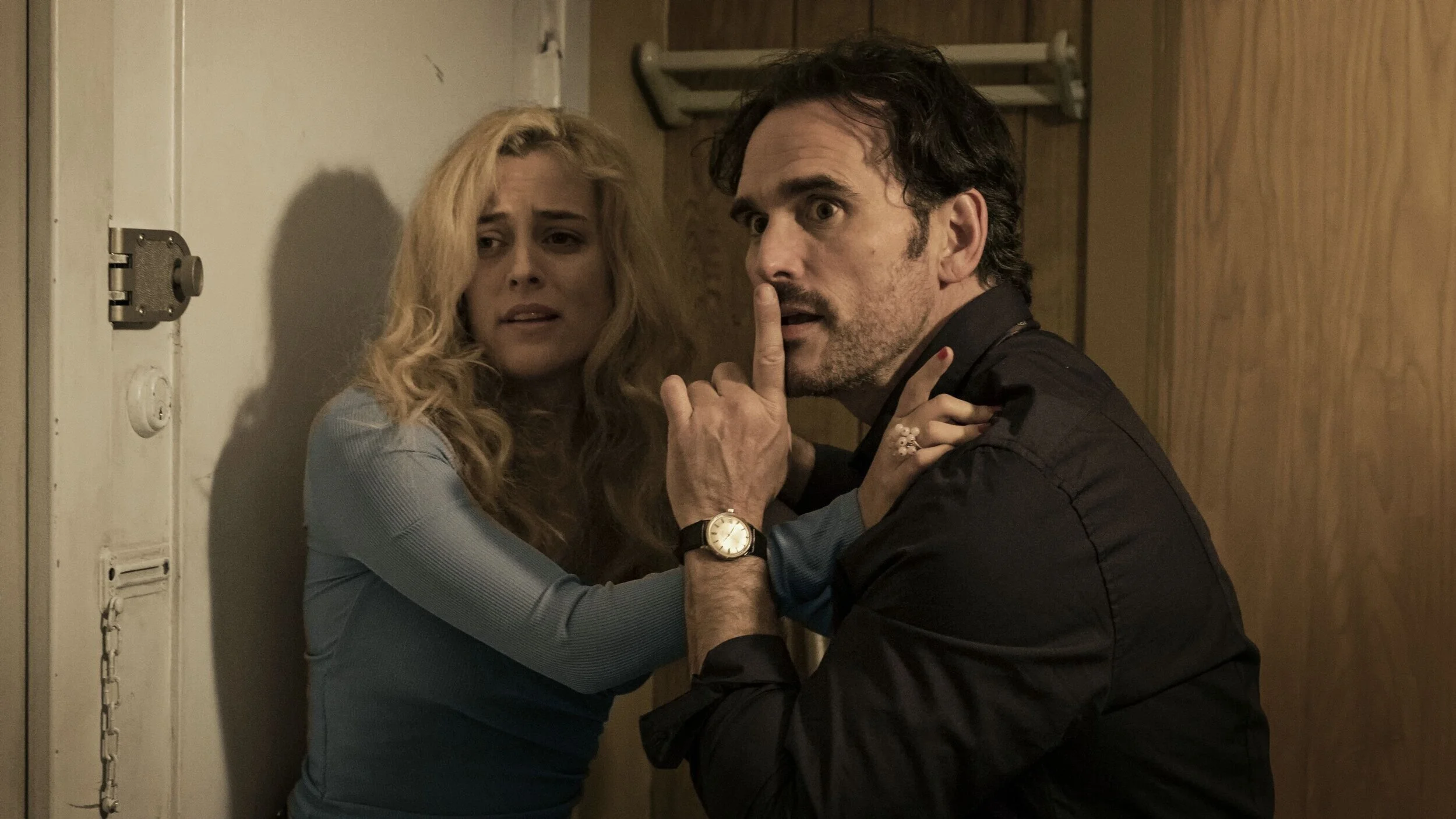The House That Jack Built
Lars von Trier’s latest hot potato is a contemplation of evil in human form and is as pretentious, mysterious and mystifying as one might expect.
Natural born killer: Matt Dillon and Riley Keough
Lars is back. Few directors today have such a distinctive visual and thematic brushstroke so that an audience can immediately recognise the artist behind the camera. In their heyday, filmmakers like Bergman, Fellini and Ken Russell displayed a totally original style. There are fewer of their kind today, but Lars von Trier is one such. Simply put, nobody else could have made such a controversial, baffling, pretentious, unique, surreal, unpredictable, barmy, provocative, imaginative and masterly piece of psychological pornography as this. A contemplation of pure evil, or in the director’s own words – “my first really moral movie” – The House That Jack Built is the story of a serial killer, played with charm and swagger by Matt Dillon. It is von Trier’s Henry: Portrait of a Serial Killer or The Texas Chain Saw Massacre, a film that explores the modus operandi of a deranged butcher, complete with the detailed recounting of his murders. But unlike the former films, this is not based (or inspired) by real-life psychopaths (Henry Lee Lucas and Ed Gein), but a creation out of the director’s own imagination. And, like many of von Trier’s later films, it is a hard watch, as if the director is attempting to test the viewer’s resolve. You just think he wants to see what he can get away with. Famously, at its Cannes premiere, more than a hundred people walked out of the screening, in either horror or disgust.
Opening with a black screen, in which Jack appears to be confessing to a priest (voiced by Bruno Ganz), the film proceeds to detail five particular acts of atrocity, partitioned into five acts captioned as ‘Incidents.’ Jack reveals that he is an architect, a lone figure who, thanks to a substantial inheritance, is able to fill his free hours with murderous activity. An educated, articulate man, Jack sees murder as an art form and as the film proceeds, we see how he manipulates his corpses, like an unhinged taxidermist, moulding his victims like plasticine into a macabre installation at his cold room locked away down a deserted alley. Intercut between the scenes of murder (the so-called ‘incidents’) are philosophical musings, animations, historical newsreel footage of not dissimilar atrocities, photographs of iconic structures, classical paintings and flashbacks to Jack’s childhood. It’s as if the director is trying to give his film a cultural credibility by name-checking the great artists, dictators and thinkers of the past. Another regular figure on screen is the pianist Glenn Gould – a favourite of Jack’s – contributing to a rich soundtrack of familiar if conventional music (Vivaldi’s ‘The Four Seasons’, Bowie’s ‘Fame’), ending with what is a blatant comic sop, Percy Mayfield's 'Hit the Road Jack'.
The director claims that Patricia Highsmith was an inspiration, as was Hitchcock, Dante, William Blake and Hieronymus Bosch. Perhaps more disturbing is his notion that the film is some kind of joke and that he had enormous fun writing it. What one cannot ignore is that von Trier is an accomplished filmmaker, and The House That Jack Built is a beautifully constructed film, with Manuel Alberto Claro's hand-held camera adding a good degree of suspense. Matt Dillon is also a forceful presence, his Jack running the gamut from the charismatic and terrifying to the comically flustered. As a piece of Grand Guignol, the film certainly has a considerable style and flourish, but its pretensions will put off as many viewers as its profound unpleasantness will repel.
JAMES CAMERON-WILSON
Cast: Matt Dillon, Bruno Ganz, Uma Thurman, Siobhan Fallon Hogan, Sofie Gråbøl, Riley Keough, Jeremy Davies, Ed Speleers.
Dir Lars von Trier, Pro Louise Vesth, Screenplay Lars von Trier, Ph Manuel Alberto Claro, Pro Des Simone Grau, Ed Jacob Secher Schulsinger and Molly Marlene Stensgaard, Music Víctor Reyes.
Zentropa/Film i Väst/Eurimages/Nordisk Film/Les films du losange-Artificial Eye.
152 mins. Denmark/France/Sweden/Germany/Belgium. 2018. Rel: 14 December 2018. Cert. 18.


